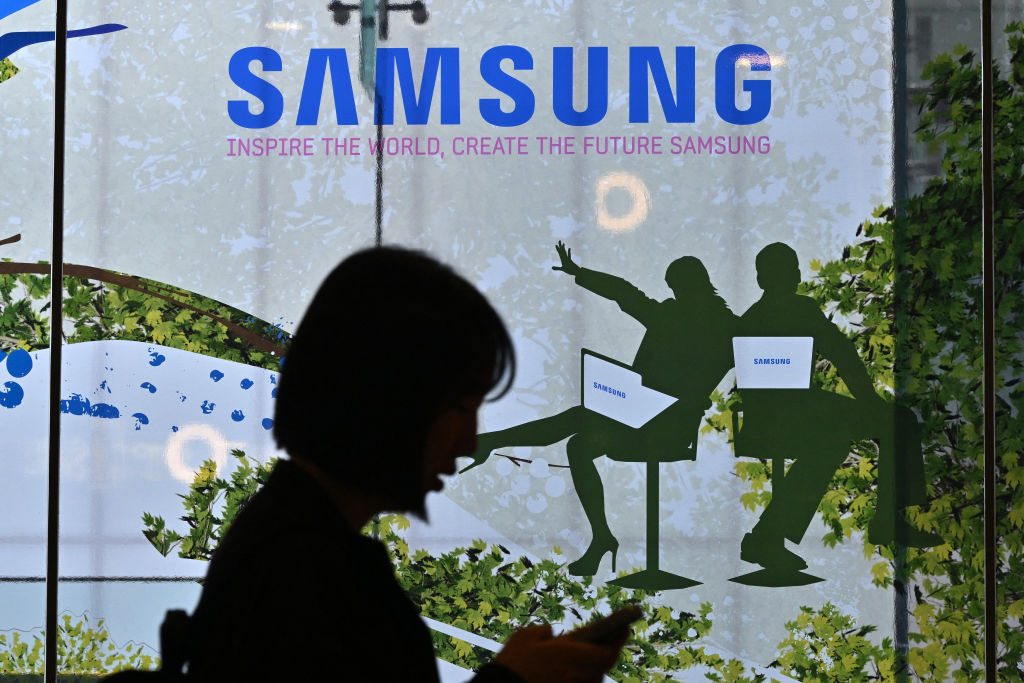News Analysis
Samsung Electronics reported a sharp drop in quarterly earnings, citing fierce competition from Chinese chipmakers and technology leaks as crucial factors behind the downturn.
On Oct. 8, the company announced its third-quarter (July–September) earnings of 9.1 trillion won (about $6.8 billion), a 12.8 percent drop from the previous quarter and significantly below the market expectation of a 3 percent growth.
Although it didn’t disclose specific division details, such as semiconductors, the company issued a separate statement explaining that its chip business was dragging down overall performance due to increased supply from Chinese memory chip companies.
Moreover, Lee Chan-hee, chairman of Samsung’s Compliance Oversight Committee, highlighted technology leaks as a significant concern in the committee’s recently released 2023 annual report.
Following its earnings release, Samsung took the rare step of apologizing to investors for what it described as a financial “crisis,” acknowledging serious challenges but expressing confidence in its ability to overcome them.
The abysmal performance came after an overall loss last year, during which Samsung didn’t pay corporate taxes for the first time, raising concerns about reduced government revenue. South Korea feels the impact when Samsung struggles, as the company accounts for about 18 percent of the country’s total exports.
Officials are taking notice. On Oct. 20, Park Sang-ook, chief secretary of Science and Technology, said Samsung’s “crisis” reflects a broader need for the country to find new growth drivers beyond semiconductors.
At a think tank forum on Oct. 14, former officials and industry experts agreed that the semiconductor industry is at a crossroads, with China posing the most significant threat. Attendees stressed that “full government backing” is crucial for the country to maintain its leadership in the intensifying “nation-versus-nation” semiconductor competition.
Former Trade Minister Sung Yun-mo pointed out that China has invested about 300 billion yuan (about $42 billion) in semiconductor companies this year alone. Meanwhile, the United States has allocated $52.7 billion under the CHIPS Act to boost its industry. He stressed that South Korea must increase its support measures and subsidies to keep pace.
Fierce Chinese Competition, Technology Theft
ChangXin Memory Technologies (CXMT), China’s largest memory chip company, is Samsung’s main rival. With state subsidies, the Chinese company has soared in recent years since its founding in May 2016.Nomura Securities estimates that CXMT’s monthly dynamic random access memory (DRAM) chip production could reach 200,000 units by the end of 2024, which is about 11 percent of global output, and projects the company could become the world’s fourth-largest DRAM maker after U.S. chipmaker Micron. DRAM chips are essential for temporary data storage in digital processing.
In addition, the Chinese company may have benefited from intellectual property theft. Earlier this year, South Korean prosecutors indicted a former Samsung department head for allegedly leaking 18-nanometer DRAM chip process information to CXMT in 2016 and recruiting around 20 technicians from Samsung and other companies to work for Chinese companies.
The Epoch Times reached out to CXMT for comment but did not receive a response by publication time.
Although CXMT’s products may not be as advanced as those from Samsung, SK Hynix, or Micron, and they encounter intellectual property issues that restrict exports, market observers expect that solid backing from the Chinese regime will enable CXMT to capture a larger share of China’s domestic smartphone and PC markets.
This poses a threat to Samsung, which heavily relies on chip exports to China. In the first half of 2024, China accounted for more than 35 percent of South Korea’s chip exports, and more than 90 percent of Samsung’s sales in China during this period were semiconductors, according to official data.
In September, former Samsung and SK Hynix executive Choi Jin-seog was re-arrested on fresh allegations of leaking Samsung’s 20-nanometer DRAM process technology to Chinese companies. Already on trial for industrial espionage since July 2023, Choi was first arrested in July 2023 and released on bail in November 2023.
Lee, the chairman of Samsung’s Compliance Oversight Committee, said technology leaks are a major concern in the committee’s 2023 annual report and called for “innovative improvement in [the company’s] governance structure.”

National Samsung Electronics Union members shout slogans in front of a signboard of Samsung Electronics outside the company's Giheung Campus in Yongin, South Korea, on July 10, 2024. (Jung Yeon-je/AFP via Getty Images)
Broader Challenges Facing Samsung
These challenges are further compounded by other issues confronting the tech giant. Despite being the world’s largest memory chip maker, Samsung is lagging behind competitors such as SK Hynix and Micron in developing next-generation high bandwidth memory chips, according to Reuters. In the foundry sector, Samsung is trailing Taiwan Semiconductor Manufacturing Company (TSMC).Adding to its woes, the company experienced its first major labor strike in July. Workers dissatisfied with wages and bonuses staged a massive protest—the first in the company’s 55-year history. Further, workers at Samsung’s factory in Tamil Nadu, India, went on strike for more than a month, between Sept. 9 and Oct. 16, after rejecting a wage increase proposal.
To cope with these challenges, Samsung plans to cut up to 30 percent of its overseas workforce in some units by the end of the year, insider sources told Reuters. This move could affect jobs worldwide, with India alone potentially losing more than 1,000 positions.
The Epoch Times could not independently verify this claim.














